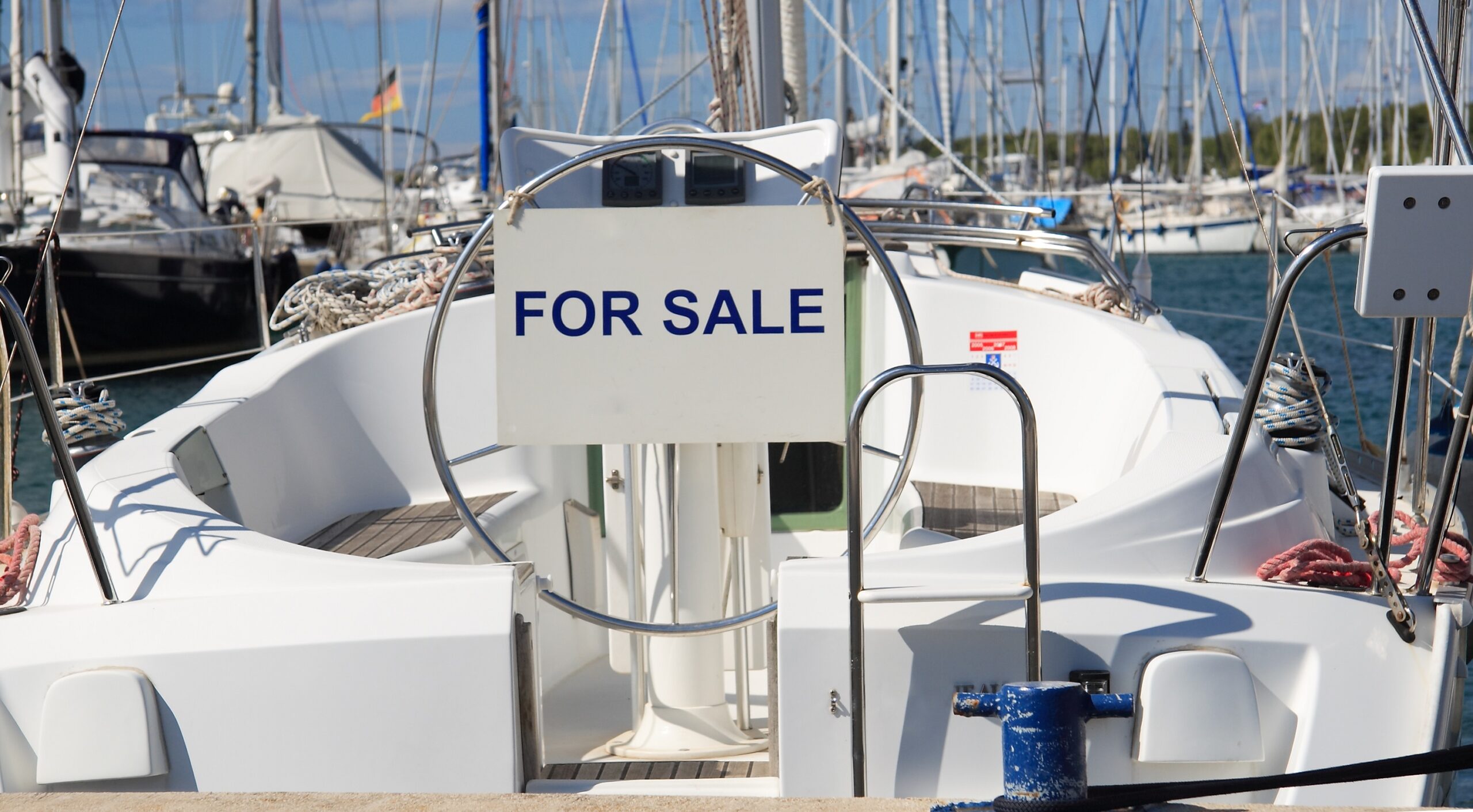Let me let you in on a secret: purchasing a used boat from a private seller empowers you to secure the possible deal of a lifetime. Take Daniella for example. After searching around the boat market in her area, she bought a pontoon boat for dirt cheap that sat abandoned for years at a marina. She worked evenings and weekends on her dream, transforming it into a vessel for chartering on the lake near her Michigan home. Soon enough, she left her full-time job and now works as captain of her own vessel. Daniella and thousands like her have taken the leap on purchasing a pre-owned boat from a private seller. Though it may seem daunting, cutting out a broker and dealing directly with a seller may be just what you need to make your boat-owning dream a reality. Here are some do’s and don’ts for those of you looking to embark on this journey.
DON’T: Pay the asking price
Private sellers are responsible for setting their prices and therefore can negotiate at will with potential buyers. Many great boat deals come from marinas and private sellers who are highly motivated to sell the vessel for a myriad of reasons, such as wanting to free up space, being tight on cash, or simply because they don’t have time for the vessel anymore. Whatever their reason, use it to your advantage in negotiation. Negotiation is done after the inspection is complete but typically before the sea trial (more on that below), so don’t shy away from using your inspection findings in the negotiation as well.
DO: Make sure that all the paperwork is in order
This is the most extensive section of this article because paperwork is the most important component of boat buying. Paperwork is also the most tricky to vet by yourself. When choosing to buy a boat directly from a private seller, the buyer must take on the responsibility of ensuring that all paperwork is accurate. The seller must establish ownership, typically through a title, previous bill of sale, or state registration. If the boat has a title, check for any liens that would prevent the seller from transferring ownership to you. For states that do not require vessels to have titles, a previous bill of sale, state registration, or US Coast Guard Documentation may serve the same purpose. Ensure that the Hull Identification Number matches the one on the boat, or that the state registration numbers match those displayed on the vessel.
You and the seller will have to bring identification and necessary documents to a notary in order to finalize the sale. You can choose to draft a bill of sale yourself, but many notaries already have templates available to fill out with both parties. Just double check that the Hull Identification Number is correct, along with the length, year, make, and model. Confirm that the bill of sale details all amenities that are to be included in the purchase (electronics, ice boxes, etc) and their serial numbers, if applicable.
Note: State registration and/or US Coast Guard documentation will need to be transferred into your name once you purchase the boat. To do so, you must complete an Exchange, Reinstatement, or Return to Documentation application, which can be found at the online National Vessel Documentation Center of the Coast Guard. If the boat seller does not have registration or documentation, then you must establish a chain of ownership to the last person who had it registered or documented. This is done using bills of sale, which must show transfer of ownership from the person who documented the boat, to the seller, and then to you (the buyer), so make sure that you secure a copy of the previous bill of sale should you find yourself in this situation
DON’T: Fall victim to online scammers
Many boat owners today are moving to Facebook, YouTube, and social media to sell their pre-owned boats. Craigslist and eBay are also popular online boat search spaces that allow you to connect directly with boat owners. However, one must always be attentive to scams when using these platforms. Do not purchase a boat before viewing it in person and definitely do not send money to anyone without first seeing their boat. Many social media platforms enable video and phone calls now, so pick up the phone and try to chat with the seller as an extra security measure. Be wary of those who refuse to take calls. As long as you are careful and smart about your communication, it's possible to find a nice boat on social media.
DO: Conduct a sea trial and thorough inspection
A careful inspection and a complete sea trial are vital aspects of the boat buying process. During this step, you will have to work as the marine surveyor (unless you choose to hire one), the helmsman, and the mechanic. Here is a general checklist of the items you need to inspect before moving forward with your boat purchase:
- Hull–How was the boat stored? Is there any damage to the hull exterior?
- Deck
- Sailing Features/Rigging
- Engine
- Batteries
- Electronics
- Make sure the boat isn’t leaking!
And here are questions to consider during a sea trial:
- How fast does the vessel accelerate?
- Steering and maneuverability–How does it manage sharp turns (right and left)?
- What does the engine sound like when it starts?
- Does the engine make any strange noises or vibrations while underway?
- Do forward, reverse, and neutral all engage smoothly?
These checklists may not be extensive, but weighing these items may be the difference between purchasing a lemon and saving yourself for the right boat.
DON’T: Be scared to take the plunge
Buying a new boat is an exciting and fulfilling experience! Don’t let the fear of “What if?” stop you from purchasing a fantastic boat from a private seller. Remember: do trust yourself and these steps and don’t rush the buying process. Picture all the adventures waiting for you out there on the water and allow that desire to guide you to your future vessel. Good luck!


